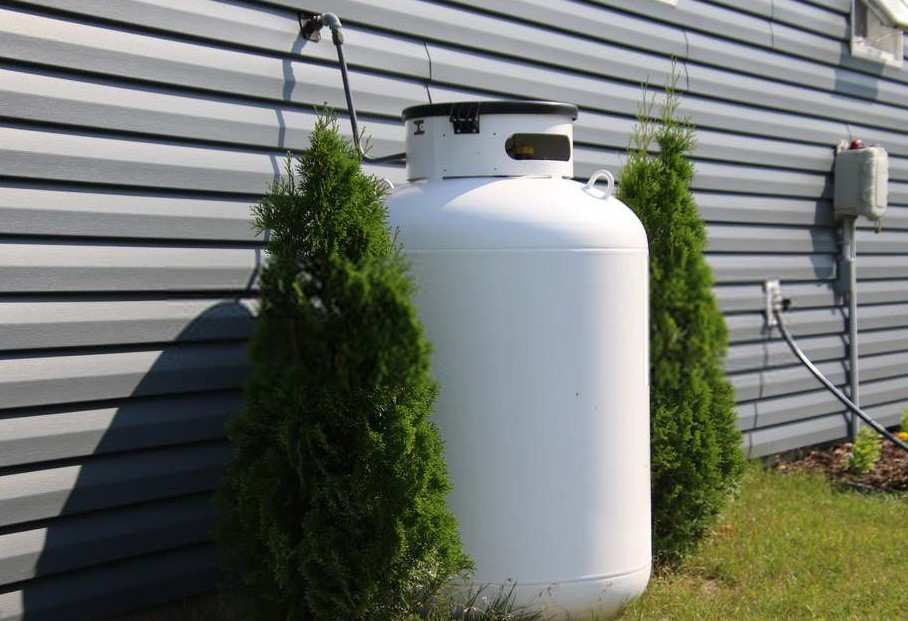Generators are generally powered by four fuels, gasoline, diesel, propane, and natural gas. While buying a generator you might be wondering what is the most efficient fuel for a generator? Diesel, hands down, is the most efficient fuel for a generator. But what makes diesel so fuel efficient?
A diesel generator functions by igniting the fuel through compression. Since diesel and air are introduced to the engine separately, only the air is compressed, meaning, your engine will run more efficiently while using less fuel.
It offers 138,700 BTUs per gallon of fuel (sufficient to heat an average-sized room for 6-12 hours), making it the most efficient fuel.
Let’s have a look at some other pros and cons of using different fuels.
Diesel

Pros
- Easy to obtain
- Fuel-efficient
- Most suitable for long-term use
- Least flammable fuel source among the four so can be stored on-site for quick and easy refueling
- On-site fuel delivery available
- Long life expectancy with proper maintenance and service under most conditions
- Less expensive to operate
- Can run in sub-arctic conditions with fuel additive.
- In high-use conditions, the overall long-term cost of operation is much lower than gasoline-powered GenSets
Cons
- The shelf life of 18 to 24 months, without additives
- Produces more engine noise than gaseous engines
- Less effective in cold temperatures, so must be used in combination with another fuel source to power generators located in colder regions
- Needs clean moisture free fuel and a bit more maintenance compared to a gaseous unit
Gasoline
Pros
- Easiest fuel source to obtain
- Have a very simple fueling process
- The most suitable fuel for portable and smaller standby generators
Cons
- Shelf life of only 12 months
- Highly flammable
- Not very fuel-efficient
- Large quantities can pose a safety hazard for on-site storage
- Somewhat expensive as demand for it always increases during an emergency
- Least suitable for cold weather conditions as compared to other fuel sources
Propane
Pros
- Limitless shelf life
- Clean burning
- Easy onsite storage for refueling
- Obtainable during power outages
- Produces very little engine noise
- Clean-burning
- More emission-compliant fuel source
- Home delivery available for larger tanks
- Less expensive units

Cons
- The pressurized cylinder of flammable gas
- More complicated fuel system
- Expensive installation and maintenance costs
- High consumption rate
- Safety issues if lines are broken
- Shorter life than diesel engines
Natural Gas
Pros
- Unlimited fuel source
- Does not require refueling
- Out-performs all other fuel sources in freezing weather conditions
- Clean burning
- More available during a power outage.
- Quieter engine noise level
- More emission compliant
- More convenient fuel source
- Promotes long-lasting generator operability
- Less expensive units
- Most environment-friendly fuel source
Cons
- Less power output than other fuels
- Higher consumption rate compared to others
- Fuel not available in many areas
- More expensive to operate by as much as 3-times the fuel consumption than diesel
- Safety issues in case lines are broken
- Hurricanes or earthquakes can obstruct the flow of natural gas lines with up-rooted trees
- Here’s a table to have a quick summary of all the fuel factors:
FAQs
What is the best fuel for a generator?
Natural gas is one of the best fuel choices for a generator since it has no storage requirements for the end-user. Also, it is cleaner, less expensive than other non-renewable fuels, and considerably efficient, however not as fuel-efficient as diesel.
How much gasoline is needed to run a generator?
A standard 5-kilowatt generator typically consumes about 0.75 gallons per hour. The average gasoline price is $2.42 per gallon in the United States. So if you operate the portable generator for a day, that would consume around 18 gallons, which means the cost to run the generator would be around $43.5 a day.
What is the most fuel efficient portable generator?
The Generac XD5000E diesel-powered generator is one of the most silent, portable, and fuel-efficient generators on the market today. With less than 5% total harmonic distortion, its True Power Technology offers a clean and smooth operation of sensitive electronics or appliances.
Which is better diesel or gas generator?
Diesel engines are much more fuel-efficient and need less maintenance compared to gasoline engines. One of the reasons why diesel last longer is because diesel engine burns cooler than gasoline. Moreover, diesel is the least flammable fuel source, while gasoline being highly flammable.

